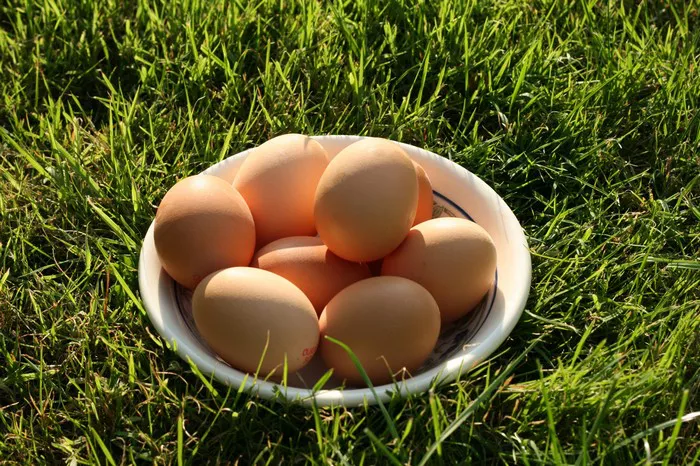Definition of Blood Sugar
Blood sugar, scientifically known as blood glucose, refers to the concentration of glucose present in the bloodstream. Glucose, a type of sugar, serves as the primary source of energy for cells throughout the body. It is produced when the body breaks down carbohydrates from food, and it is regulated by various hormones, primarily insulin, which is produced by the pancreas.
Importance of Monitoring Blood Sugar
Monitoring blood sugar levels is crucial for maintaining overall health, especially for individuals with diabetes. Diabetes is a condition characterized by high blood sugar levels either due to insufficient insulin production (Type 1 diabetes) or the body’s inability to effectively use insulin (Type 2 diabetes). Consistently high blood sugar levels can lead to serious health complications, including cardiovascular disease, kidney damage, nerve damage, and vision problems. By regularly monitoring blood sugar levels, individuals with diabetes can make informed decisions about their diet, medication, and lifestyle to better manage their condition and reduce the risk of complications.
Normal Blood Sugar Ranges
Normal fasting blood sugar levels, measured after at least eight hours of fasting, typically range between 80 to 130 milligrams per deciliter (mg/dL). However, these values may vary slightly depending on factors such as age, individual health status, and the timing of the measurement. For individuals without diabetes, blood sugar levels tend to stay within this range, providing a stable source of energy for the body’s cells.
Factors Affecting Blood Sugar Levels
Several factors can influence blood sugar levels, making it important to consider these variables when monitoring and managing blood sugar:
Diet: The types and quantities of food consumed can significantly impact blood sugar levels. Foods high in carbohydrates, such as bread, pasta, and sugary snacks, tend to cause a rapid increase in blood sugar levels, while foods high in protein and fiber may result in a slower, more gradual increase.
Exercise: Physical activity can help lower blood sugar levels by increasing the body’s sensitivity to insulin, allowing cells to more effectively absorb glucose from the bloodstream. However, intense or prolonged exercise can sometimes cause blood sugar levels to drop too low, especially in individuals taking insulin or certain medications.
Stress: Stress hormones, such as cortisol and adrenaline, can cause blood sugar levels to rise temporarily as part of the body’s natural “fight or flight” response. Chronic stress, however, can lead to persistently elevated blood sugar levels, which may contribute to the development or worsening of diabetes over time.
Sleep: Adequate sleep is essential for maintaining healthy blood sugar levels. Poor sleep quality or insufficient sleep can disrupt hormone levels and increase insulin resistance, potentially leading to higher blood sugar levels and an increased risk of diabetes.
Testing Blood Sugar
There are two primary methods for testing blood sugar levels: using a blood glucose meter or a continuous glucose monitor (CGM).
Blood Glucose Meter: To test blood sugar levels using a blood glucose meter, individuals must first clean the testing site, usually a fingertip, with an alcohol swab. They then prick the fingertip with a lancet to obtain a small drop of blood, which is placed on a test strip inserted into the meter. The meter then displays the blood sugar level within a few seconds.
Continuous Glucose Monitor (CGM): A CGM is a device that continuously measures glucose levels in the interstitial fluid beneath the skin. It consists of a sensor, which is inserted under the skin, and a transmitter, which sends real-time glucose readings to a receiver or smartphone app. CGMs provide a more comprehensive view of blood sugar trends throughout the day and can alert users to high or low blood sugar levels.
Interpreting Results
Interpreting blood sugar results requires an understanding of target ranges and individual health goals. For individuals without diabetes, fasting blood sugar levels between 80 to 130 mg/dL are generally considered normal. However, blood sugar levels can vary throughout the day in response to food, exercise, medication, and other factors.
For individuals with diabetes, target blood sugar ranges may vary depending on factors such as age, overall health, and treatment plan. Healthcare providers typically work with patients to establish personalized blood sugar targets and recommend appropriate lifestyle modifications and medication adjustments to help achieve these goals.
Managing Blood Sugar
Managing blood sugar levels effectively involves a combination of lifestyle changes, medication (if applicable), and regular monitoring. Here are some tips for managing blood sugar levels:
Follow a balanced diet: Focus on eating a variety of nutrient-rich foods, including fruits, vegetables, whole grains, lean proteins, and healthy fats. Limit intake of sugary foods and beverages, refined carbohydrates, and high-fat foods.
Exercise regularly: Aim for at least 150 minutes of moderate-intensity aerobic exercise, such as brisk walking or cycling, per week, in addition to muscle-strengthening activities on two or more days per week. Consult with a healthcare provider before starting a new exercise program, especially if you have diabetes or other medical conditions.
Take medications as prescribed: If you have diabetes, take your medications, including insulin or oral medications, as directed by your healthcare provider. Monitor your blood sugar levels regularly and report any significant fluctuations to your healthcare team.
Monitor blood sugar levels: Use a blood glucose meter or CGM to monitor your blood sugar levels regularly, especially before meals, after meals, before and after exercise, and at bedtime. Keep a record of your readings and share them with your healthcare provider during regular check-ups.
Manage stress: Practice stress-reducing techniques such as deep breathing, meditation, yoga, or tai chi to help lower stress levels and improve blood sugar control.
When to See a Doctor
It’s important to seek medical advice if you experience symptoms of abnormal blood sugar levels, including:
Persistent thirst or hunger
requent urination
Unexplained weight loss
Fatigue or weakness
Blurred vision
Slow wound healing
Tingling or numbness in the hands or feet
Additionally, if you have diabetes and experience consistently high or low blood sugar levels despite following your treatment plan, consult with your healthcare provider for further evaluation and adjustments to your management regimen.
Conclusion
ConclusionIn conclusion, understanding and managing blood sugar levels is essential for overall health and well-being, particularly for individuals with diabetes. By monitoring blood sugar levels regularly, making lifestyle modifications, and seeking appropriate medical care when needed, individuals can reduce the risk of complications and enjoy a higher quality of life.
Related topics
- Longest Living Type 1 Diabetic
- Optimal Meal Timing and Frequency for Diabetics
- Can you eat bananas with high blood sugar?



























